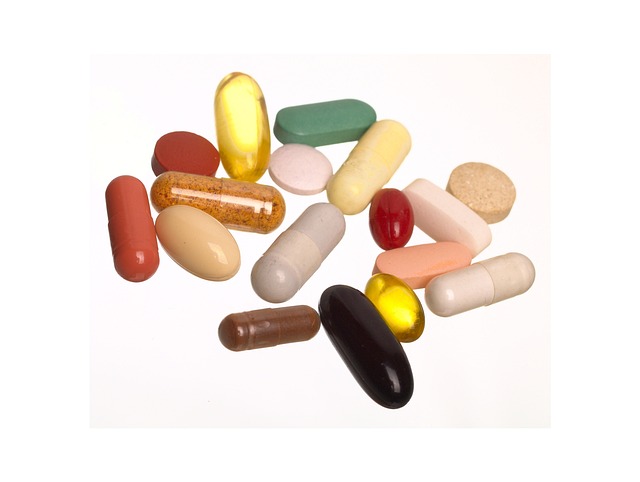Ulcerative Colitis Treatment: Medical and Natural Options
Colitis treatment options focus on easing symptoms and improving quality of life through a combination of medication, dietary changes, and supportive care. With guidance from healthcare professionals, patients can explore approaches that suit their condition and help manage inflammation effectively.

What Are the Standard Colitis Treatment Options?
Medical professionals typically begin ulcerative colitis treatment with anti-inflammatory medications designed to reduce intestinal inflammation. Aminosalicylates, such as mesalamine, are often the first line of defense for mild to moderate cases. These medications can be taken orally or administered as suppositories or enemas for direct treatment of rectal inflammation.
For more severe cases, corticosteroids like prednisone may be prescribed to quickly control inflammation during flare-ups. However, these medications are generally used for short-term management due to potential side effects with long-term use. Immunosuppressive drugs, including azathioprine and methotrexate, may be recommended for patients who don’t respond adequately to other treatments.
Biologic medications represent a newer class of treatments that target specific proteins involved in the inflammatory process. These include anti-TNF agents like infliximab and adalimumab, which have shown significant success in managing moderate to severe ulcerative colitis.
Natural Colitis Treatment Options for Relief
Many patients seek natural approaches to complement their medical treatment or manage mild symptoms. Dietary modifications play a crucial role in natural ulcerative colitis management. An anti-inflammatory diet rich in omega-3 fatty acids, found in fish oil supplements and fatty fish, may help reduce intestinal inflammation.
Probiotics have gained attention for their potential to restore healthy gut bacteria balance. Certain strains, particularly VSL#3 and Escherichia coli Nissle 1917, have shown promise in clinical studies for maintaining remission in ulcerative colitis patients.
Turmeric, containing the active compound curcumin, has demonstrated anti-inflammatory properties that may benefit colitis patients. Some studies suggest that curcumin supplements, when combined with conventional treatment, may help reduce symptoms and maintain remission periods.
Stress management techniques, including meditation, yoga, and regular exercise, can also play a supportive role in natural colitis management, as stress is known to trigger flare-ups in many patients.
Alternative and Holistic Colitis Treatment Options
Holistic approaches to ulcerative colitis treatment focus on treating the whole person rather than just the symptoms. Acupuncture has shown potential benefits for some patients, with studies indicating it may help reduce inflammation and improve quality of life when used alongside conventional treatments.
Herbal remedies have been used traditionally to manage inflammatory bowel conditions. Aloe vera gel, when taken orally, has demonstrated mild anti-inflammatory effects in some small studies. Boswellia serrata, also known as Indian frankincense, contains compounds that may help reduce intestinal inflammation.
Mind-body therapies, including cognitive-behavioral therapy and mindfulness-based stress reduction, can help patients develop coping strategies for managing chronic disease symptoms and improving overall well-being.
Some practitioners recommend elimination diets to identify potential food triggers. Common approaches include the Specific Carbohydrate Diet (SCD) and the GAPS diet, though these should be implemented under professional guidance to ensure nutritional adequacy.
Colitis Treatment Options for Long-Term Management
Long-term ulcerative colitis management requires a multifaceted approach that combines medication adherence with lifestyle modifications. Regular monitoring through colonoscopies and blood tests helps healthcare providers adjust treatment plans as needed and screen for potential complications.
Maintenance therapy typically involves continuing anti-inflammatory medications even during symptom-free periods to prevent flare-ups. The specific medication and dosage depend on disease severity, location, and individual patient response.
Nutritional support is essential for long-term management, as ulcerative colitis can lead to malabsorption and nutrient deficiencies. Working with a registered dietitian who specializes in inflammatory bowel diseases can help patients develop sustainable eating plans that support healing and prevent nutritional gaps.
Building a strong support network, including healthcare providers, family members, and patient support groups, contributes significantly to successful long-term management. Many patients find benefit in connecting with others who understand the challenges of living with chronic inflammatory bowel disease.
Regular exercise, when tolerated, can help maintain bone health, reduce stress, and improve overall quality of life. Low-impact activities like swimming, walking, and gentle yoga are often well-tolerated by patients with ulcerative colitis.
Successfully managing ulcerative colitis requires patience, persistence, and close collaboration with healthcare providers. While there is no cure for this chronic condition, the combination of appropriate medical treatment, natural supportive therapies, and lifestyle modifications can help many patients achieve and maintain remission while living full, active lives.
This article is for informational purposes only and should not be considered medical advice. Please consult a qualified healthcare professional for personalized guidance and treatment.




